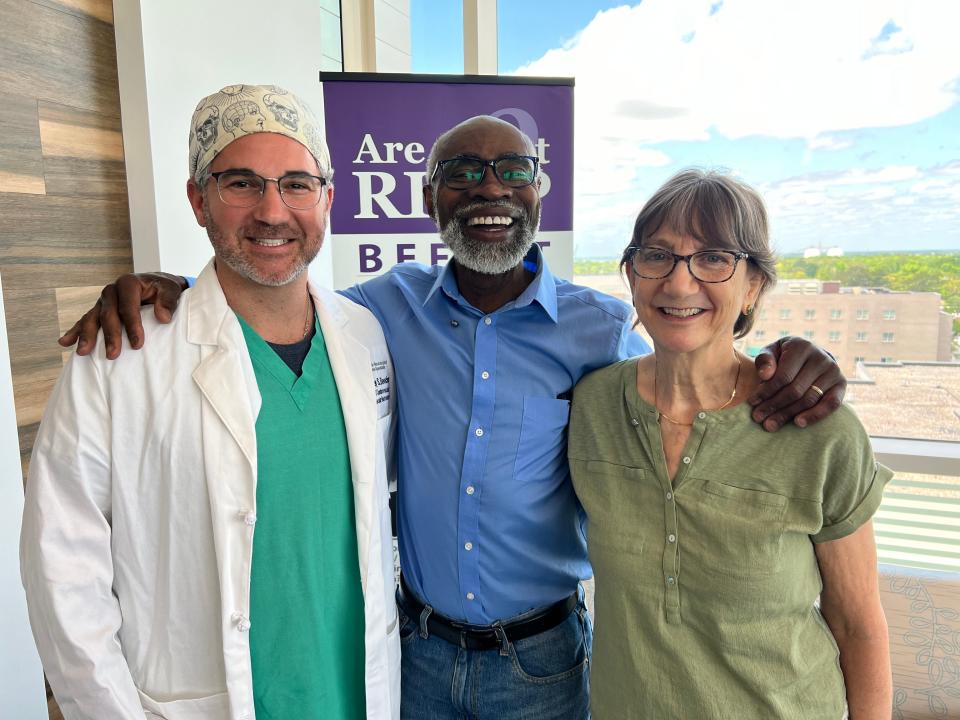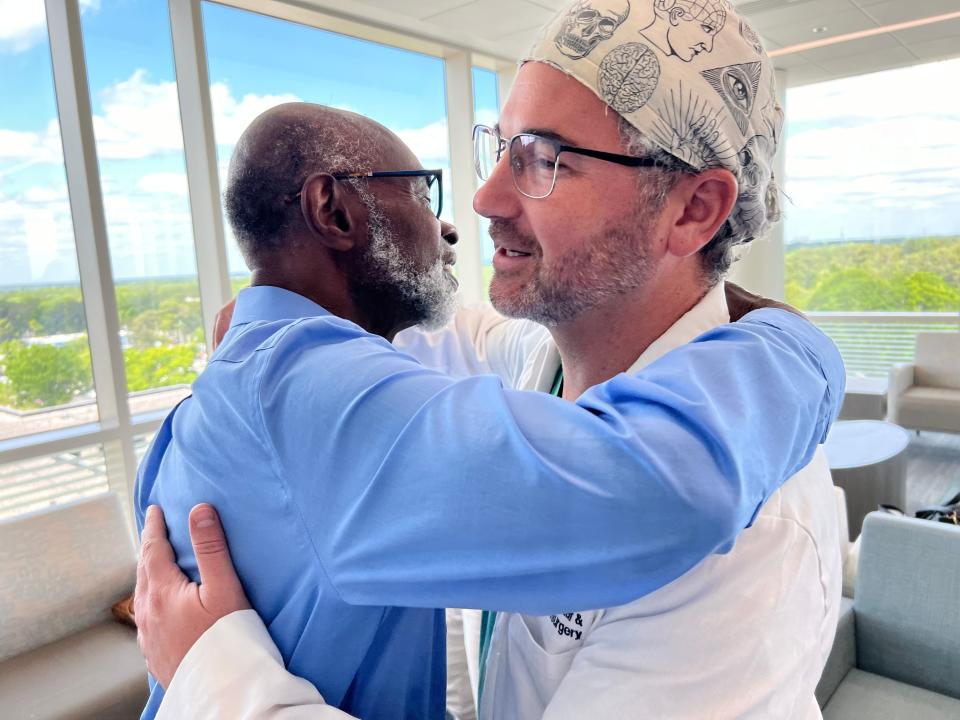Wilmington man describes himself as a 'walking and talking miracle' after stroke recovery
On Dec. 8, 2023, Chuck Carree was preparing to walk his dog Princess when his wife Paige Owens noticed something that stopped them all in their tracks.
“I walked in the bedroom carrying the mail, and I looked at him and he looked at me, and he always smiles,” she said. “He gave me a big smile, but it was only half of his face. The other half of his face was completely fallen.”
Carree continued to smile and tried to speak but could only manage grunts. Owens immediately called 911 and told the dispatcher she believed her husband was having a stroke.
“I remember lying on the bed, and I felt like I was in a fog,” Carree recalled. “I had never experienced anything like that.”
Owens explained Carree was the last person one would expect to experience a stroke. Carree retired in 2013 after working as a sports writer for the StarNews for 35 years and was inducted into the Greater Wilmington Sports Hall of Fame for his work in 2015. Since then, he’s remained active walking about 60 miles a week with his dog Princess. Carree and Princess are part of Therapy Dog International and work as a team visiting assisted-living facilities.

More inspirational stories: 'I'm ready and now, I'm doing it': Wilmington woman commits to education
The ride to the hospital was stressful for Owens. While Carree was in the ambulance receiving care, she was driving and calling family to tell them what was happening. Owens told them she felt the day would usher in a new chapter in their lives.
“I assumed that my role was going to transition to caregiver,” she said. “I was already envisioning that, wondering what that was going to be like.”
But Owens never had to find out. While Carree did suffer a stroke, he arrived at Novant Health New Hanover Regional Medical Center where a team of trained specialists were waiting to assess, treat and care for him.
Dr. Jeffrey Beecher credits Owens for recognizing the signs and calling 911 immediately. He said getting to the hospital quickly is critical to improving the outcomes for stroke patients.
“I feel like a lot of people are hesitant to call 911, but they should,” Beecher said, adding that in stroke medicine, there is a saying that “Time is brain.”
He explained arriving by ambulance is important because emergency medical personnel can “activate the stroke code in the field,” which allows the team to be waiting for them on arrival.
Beecher also said that after finding the clot on imaging, they used a catheter to go through Carree’s right wrist and into the left side of his brain where they removed the clot.
“We got the clot out in one pass, and it went beautifully,” Beecher said, adding the actual procedure took about five minutes.

By the next morning, Owens said Carree was on the phone talking to his sister, and two days later, he was released from the hospital. Soon after returning home, he resumed his normal activities. The only sign of the stroke is a scar on his wrist.
Follow up care revealed Carree’s stroke occurred due to atrial fibrillation, an abnormal heart rhythm. He now takes medication to regulate his heart rhythm and prevent future clots. Carree and Owens said they are grateful for the care he received.
“We know every day how fortunate we are,” Owens said.
“I feel like I am a walking and talking miracle,” he said. “That’s how I would describe myself.”
This article originally appeared on Wilmington StarNews: Quick thinking, access to care help Wilmington man survive a stroke
